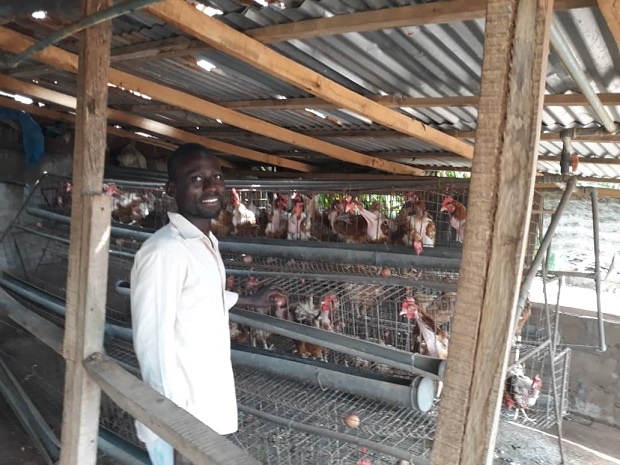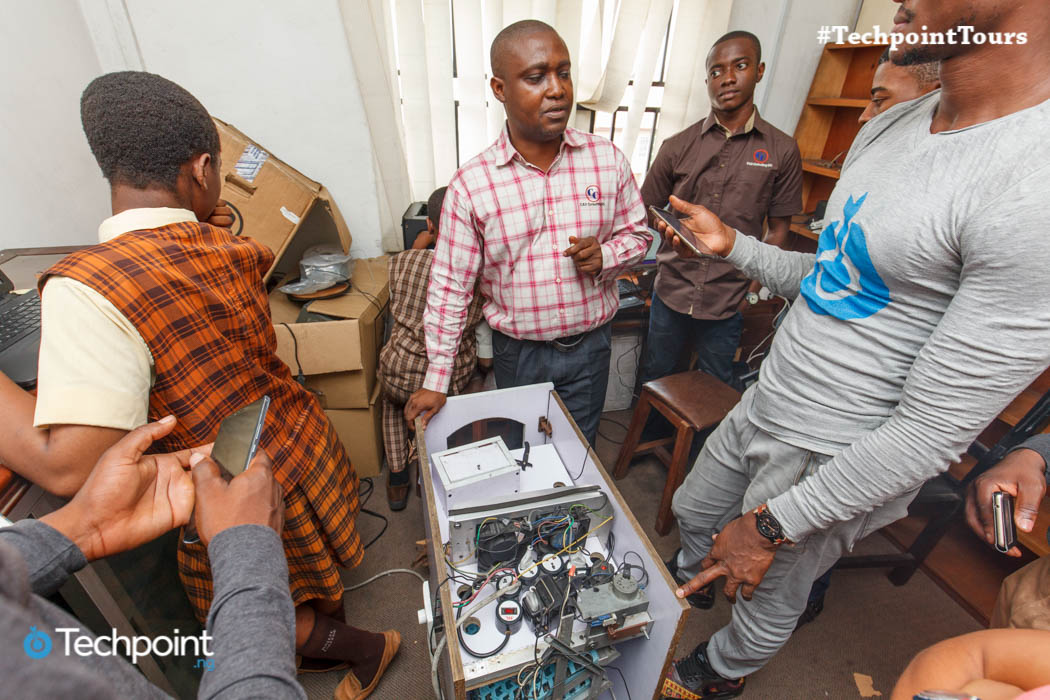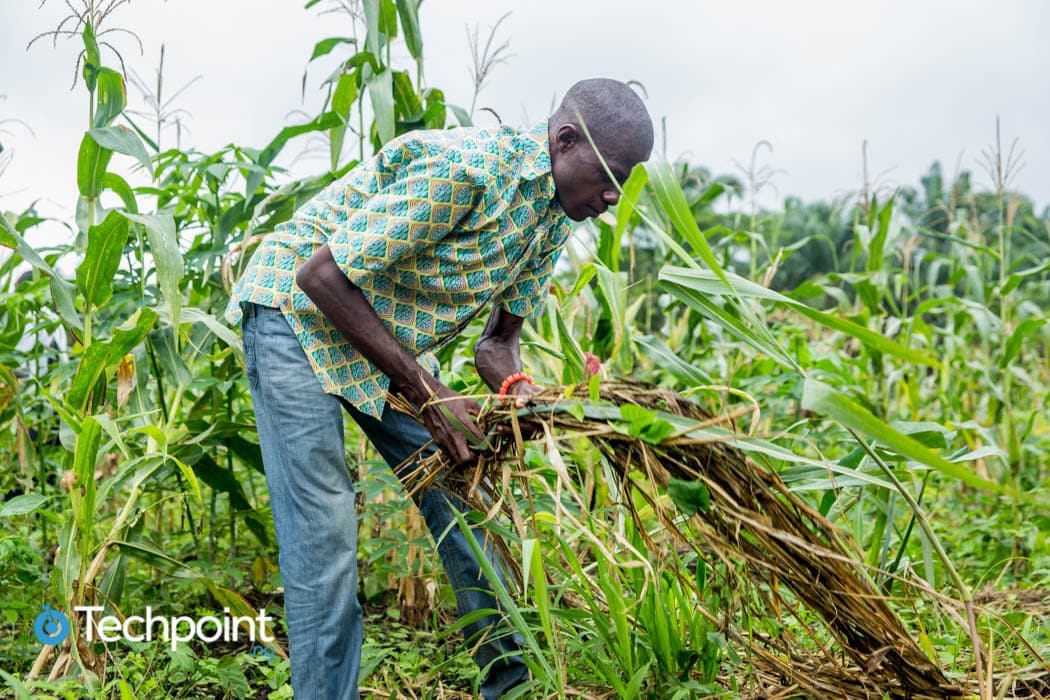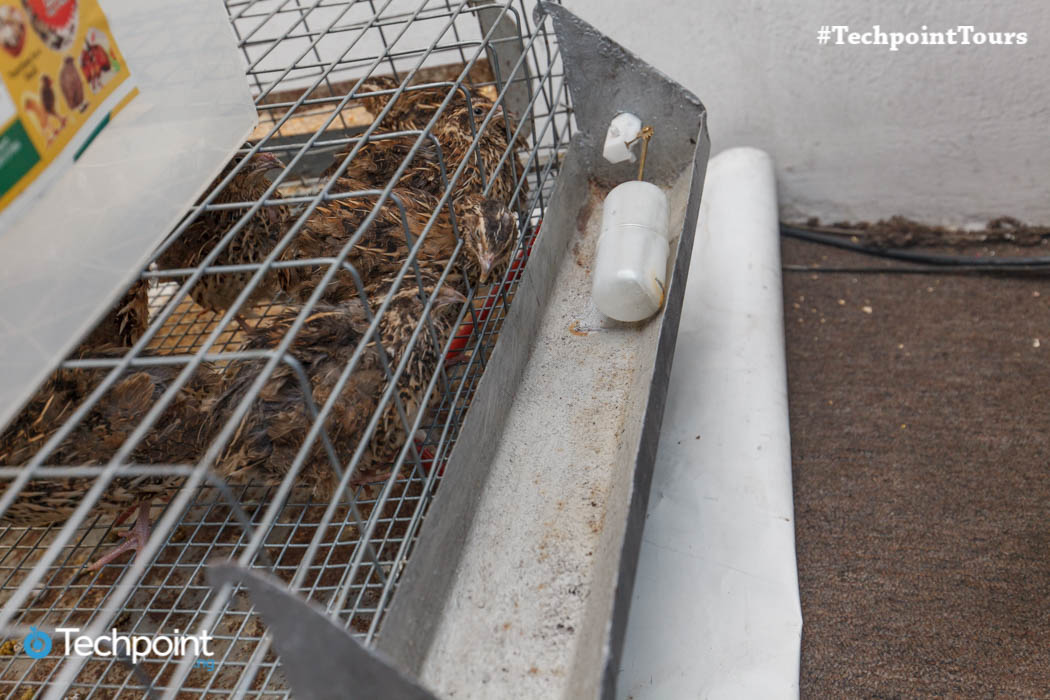By most standards, Gbolagbo is already living the dream of most “wannabe” poultry farmers in Nigeria. At 27, he runs two poultry farms; one in Ikorodu with 150 chickens and a bigger one in Ogun State. If his 150 chickens in Ikorodu are well fed, within 48 hours they turn in 120 eggs.
There is no specific formula to ascertain daily production quantity of chicken eggs, but experts are of the opinion that the amount of egg(s) produced in a layer farm is in direct proportion to the number of birds in the flock. Looking at that, we can hardly say that Gbolagbo’s production is optimal. His chickens are not only down by a day’s production, total output is just about 80%.
To attain maximum production, the farmer must adhere to sound management techniques, including feed formulation, space, temperature and humidity in the growing area.
This is what Ojemaifarms, based in Benin City, Edo State, is doing to optimise production. Their egg production quantity, that amounts into 50,000-100,000 pieces daily, is impressive. They have benefitted from automating their hen houses and streamlining their operations using an Enterprise Resource Planning (ERP) solution. Gbolagbo, in contrast, still suffers from a lack of knowledge.
“This is how I have been carrying on my poultry operation, but if there’s a way that increases my productivity I would be happy to try it out,” he says.

Sadly, he is not alone as there are many other farmers like him who do not know that technology can improve their operations.
Ideally, Nigeria’s poultry industry has the capacity to generate more than ₦1.2 trillion in revenue. But the knowledge constraint has impeded growth.
Even outside the realm of poultry farming, the same problem exists
Growing up in a family that practised traditional farming, Wale Ibiniale developed an aversion for repetitive tasks. He then began testing out innovative ideas out of a burning desire to automate those tasks. Interestingly, his solutions solved problems in agriculture and, unknown to him, this experience would guide him on his entrepreneurial journey to founding CAD Digital Consulting.

Structurally, CAD Digital Consulting is a three-pronged system consisting of software as a service (SaaS), the consulting division and a business incubator. These systems interplay in advancing the concept of a digital farm.
“There’s a dynamic to farming. For it to be profitable, it has to be run like a proper business. The best way to ensure profitability is by going the digital farming route,” Wale explains.
For every agricultural production, there are standard business processes to follow. But the digital farm model, according to Wale, is what makes production optimal. In poultry farming, for example, the poultry management system — which automates egg production — is a use case for digital farming.
The system keeps a detailed daily record of areas like feed consumption (by pen, cage or racks), mortality rate, feed conversion ratio, bird productivity/efficiency etc. It also comes with a trade figure designed to shore up the business side of the operations; like managing payroll, accounting and HR.
A digital farm comes with many advantages because the emphasis is on data. The data captured enables the farmer to make informed decisions in real time.
With human judgement, Wale highlights the possibility of error, and this is true as we have seen in Gbolagbo’s case earlier. Especially for farmers who are focused on exportation, a digital operation will be nothing short of basic.
In a more technical sense, Ojemaifarms is symbolic of a digital farm and more so, are an enterprise customer of CAD Digital Consulting.
A digital farm comes with the need to be digitally literate. Considering that the questions hanging around digital literacy in Nigeria largely affects farmers, there is a doubt concerning the business model of CAD Digital Consulting.
The entire operation of CAD Digital Consulting as earlier mentioned is structured around three models, one of them involves selling the agritech software to farmers. So asides from the initial scepticism around digital literacy of farmers, there is a fear of affordability of the software solution.
“We just don’t sell software,” Wale motions, “We now do a lot of training and consultancy as well as incubation. We recently had a training with some rural poultry farmers on the various international standards and particularly how to use the service. Sometimes we take the pain to visit farms.”
CAD Digital Consulting also maintains a quail farm (under the umbrella of CAD Digital farm) from which it generates a bulk of its revenue, in addition to money generated from incubation services.
Obviously, CAD Digital Consulting sees involvement in the entire ecosystem of its operation as a necessity. This way, it might be able to drive down the cost of a particular service while making up for it elsewhere along the value chain.
That it also has its own farm, where it first tests out the solution before deploying it to clients, is another indicator. Regardless, one of the ways to know a credible business is if it can stand the test of time. CAD Consulting has been in existence for 18 years and seems adequately equipped for the challenges.
In a country with over 180 million consumers that are daily in need of agricultural products, the market is always waiting to be tapped.
As the present investors and farmers lean more towards the traditional system of farming, Wale thinks they cannot meet up with demand. Hence the upswing in importation.
But by trying to solve this problem at scale using digital means, CAD Digital Consulting is looking to be a leader in the Nigerian agricultural technology space.












